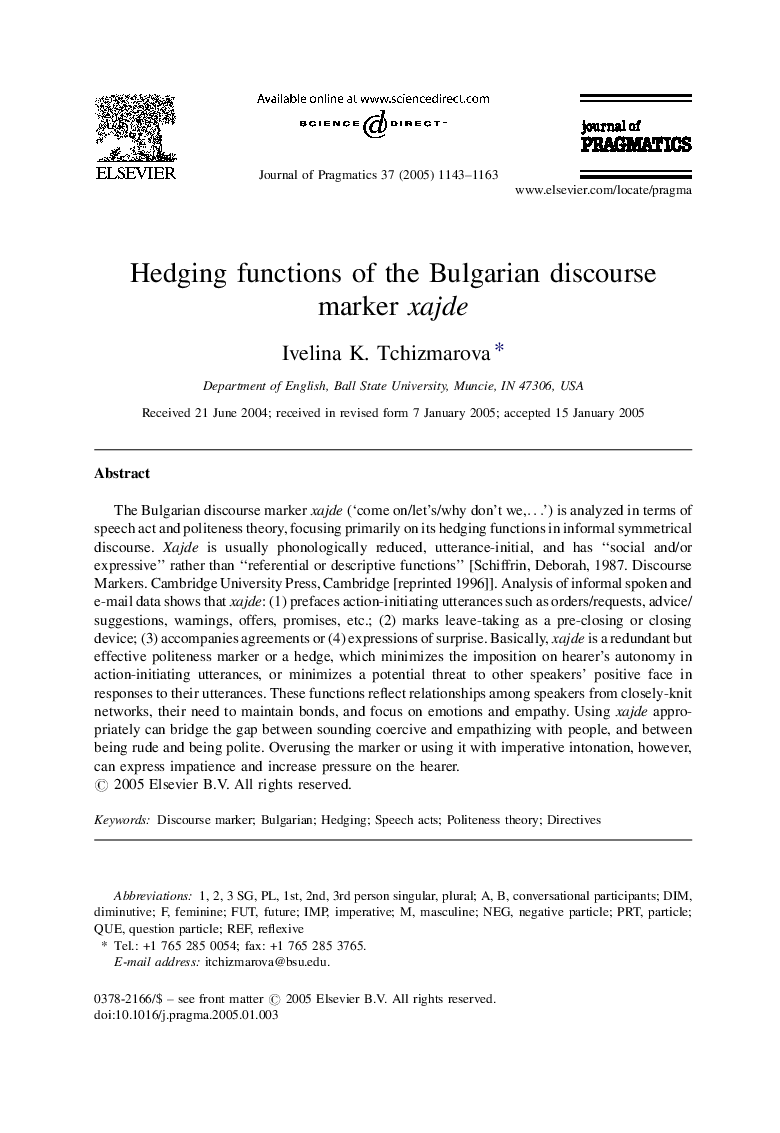| Article ID | Journal | Published Year | Pages | File Type |
|---|---|---|---|---|
| 10460193 | Journal of Pragmatics | 2005 | 21 Pages |
Abstract
The Bulgarian discourse marker xajde ('come on/let's/why don't we,â¦') is analyzed in terms of speech act and politeness theory, focusing primarily on its hedging functions in informal symmetrical discourse. Xajde is usually phonologically reduced, utterance-initial, and has “social and/or expressive” rather than “referential or descriptive functions” [Schiffrin, Deborah, 1987. Discourse Markers. Cambridge University Press, Cambridge [reprinted 1996]]. Analysis of informal spoken and e-mail data shows that xajde: (1) prefaces action-initiating utterances such as orders/requests, advice/suggestions, warnings, offers, promises, etc.; (2) marks leave-taking as a pre-closing or closing device; (3) accompanies agreements or (4) expressions of surprise. Basically, xajde is a redundant but effective politeness marker or a hedge, which minimizes the imposition on hearer's autonomy in action-initiating utterances, or minimizes a potential threat to other speakers' positive face in responses to their utterances. These functions reflect relationships among speakers from closely-knit networks, their need to maintain bonds, and focus on emotions and empathy. Using xajde appropriately can bridge the gap between sounding coercive and empathizing with people, and between being rude and being polite. Overusing the marker or using it with imperative intonation, however, can express impatience and increase pressure on the hearer.
Keywords
Related Topics
Social Sciences and Humanities
Arts and Humanities
Language and Linguistics
Authors
Ivelina K. Tchizmarova,
